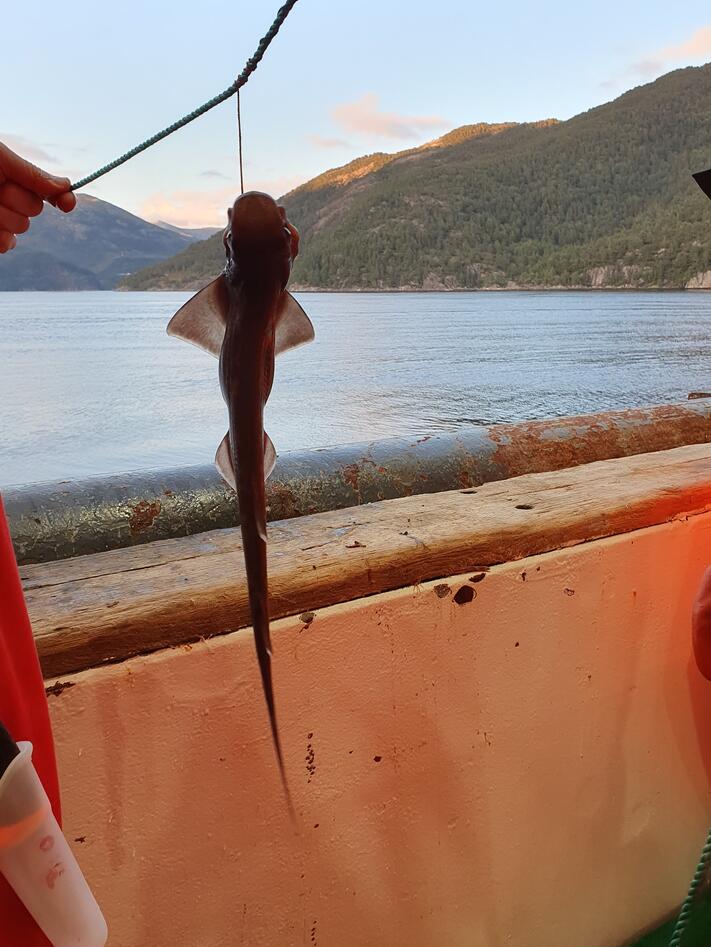Karen completes her Master degree
Karen has been studying the distribution and diet of two small sharks, the velvet belly and blackmouth catshark, in west Norwegian fjords.

Hovedinnhold
Karen Rosland defended on Friday 17th of June 2022 her thesis titled "A comparison of the spatial ecology, trophic ecology, and hypoxia tolerance of Velvet belly lanternshark (Etmopterus spinax) and Blackmouth catshark (Galeus melastomus) in Norwegian fjords”. As we know, Masfjorden has had some years with oxygen loss due to a 75 m shallow sill separating the deep basin water (basin depth 485 m) from waters outside the fjord, whereas the neighbour fjord, Fensfjorden, is well oxygenated. Karen’s aims were to examine if distributions and diet differed in these two fjords.
Karen used survey data and processed samples collected for the HypOnFjordFish project onboard the RV G.O. Sars and RV Kristine Bonnevie to explore and compare the trophic ecology, energetic physiology, and hypoxia tolerance of the two sharks. She found that while E. spinax migrated high up from the seabed and into the pelagic zone, G. melastomus was mainly caught associated with the seabed. The diet study and stable isotope analysis also showed a clear difference in the species’ diet, supported by stable isotope signatures in muscle tissues that showed G. melastomus to feed at one trophic level higher than E. spinax. Stomach content analysis showed a benthic-associated diet for G. melastomus and a more pelagic diet for E. spinax. Karen’s study also showed that E. spinax had a more efficient energy storage with a hepatosomatic index (HSI) of 20% and a water content of only 8%, while G. melastomus had an average HSI of 5% and a water content of ~30%. The data set Karen was exploring did not show a clear direct effect of low oxygen levels on these shark species. Her master thesis increases the knowledge on these species and fills knowledge gaps on their ecology and hypoxia tolerance, especially in Norwegian fjords where information previously has been lacking.
The external examiner was Robert Lennox from the NORCE & NIVA, and the internal examiner was Adele Mennerat. The thesis has been supervised by Natalya Gallo and Anne Gro Vea Salvanes (Fjord and Coastal Ecology).

Velvet belly lanternsharks ready for dissection.
